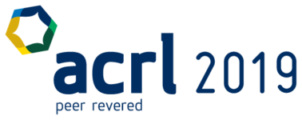Session Description:
It’s an understatement to say that Artificial Intelligence (AI) will change the world. In fact, it will revolutionize the world, and in every way of life, including education. Thus, in order to be on the cutting edge, libraries and higher education need to begin to understand ways AI can be used and harness its power. This session will demonstrate an innovative application of AI to the new form of academic currency–the micro-credential–and discuss how this application could lead to broader uses in libraries and academia.
